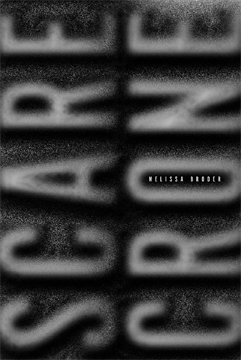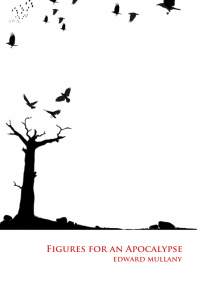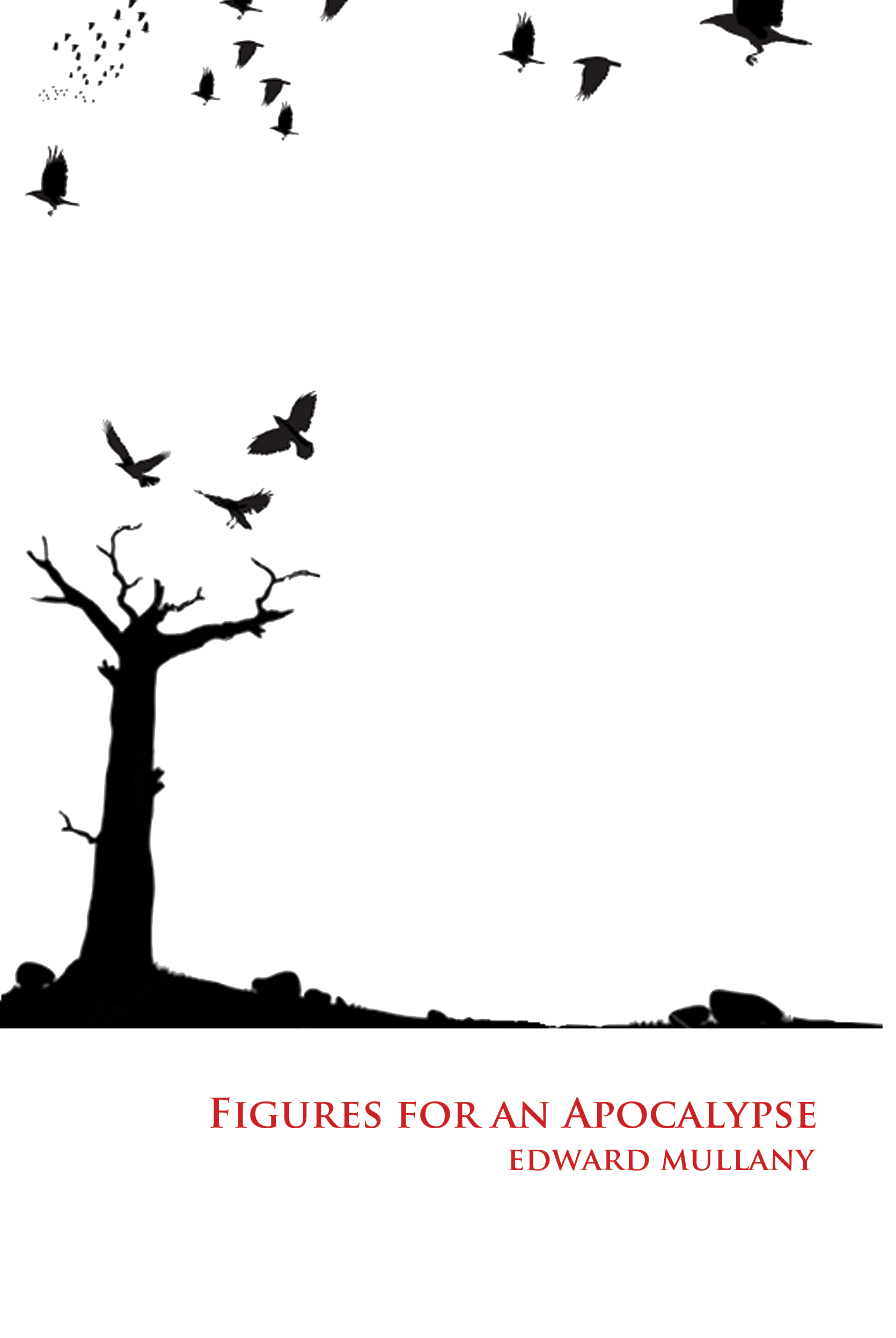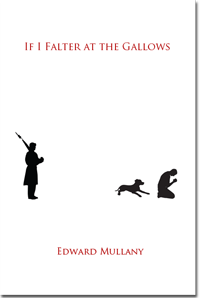Edward Mullany Interviews Melissa Broder
 Every time a new book comes out from Publishing Genius, the author is interviewed by the author of the previous PGP book. I’m pleased to present a bunch of questions that Edward Mullany (author of Figures for an Apocalypse) posed to Melissa Broder (author of SCARECRONE). —Adam Robinson
Every time a new book comes out from Publishing Genius, the author is interviewed by the author of the previous PGP book. I’m pleased to present a bunch of questions that Edward Mullany (author of Figures for an Apocalypse) posed to Melissa Broder (author of SCARECRONE). —Adam Robinson
EDWARD: Can you talk about the figure of the “Scarecrone” as she relates to your book as a whole? What is her significance?
MELISSA: The Scarecrone personifies my fears around time, death, and the loss of physical beauty / sexual desirability. She is a dry succubus, a cautionary tale of the inevitable and the perceived inevitable. She is a mirage. But she is a powerful mirage. She is dangerous in her unreality. She may have something wise to teach. On a social level, one might say she is the ghosts of discarded women in a culture obsessed with youth, though this book doesn’t really fuck with culture, because I don’t really fuck with culture. I fuck with me, mostly, and my own obsession with youth. I fuck with time. I fuck with fucking. Also death.
To your mind, is the difference between “the inevitable and the perceived inevitable” a significant one? What is that difference?
I made the distinction here, because death is (historically) inevitable, whereas time’s slow, cruel drain on my worth as a human being is a perceived inevitability. Where did I get this fear that to grow old is to become worthless? Did I get it from culture? From my mother? From nature? It isn’t a truth in the way that death is a truth. And intellectually, I know it’s not a truth at all. But to me, on a visceral level, it’s a very real fear. And it dictates a lot of my actions. And I can probably make it true if I believe it enough, or at least I can will my own misery. So I guess I’d say that the inevitable and the perceived inevitable are different, but that one’s reality and one’s perceived reality are the same.
You mention that the Scarecrone can be understood as a sort of succubus. Does this suggest that your poems are concerned as much with the supernatural, or spiritual, as they are with the physical? Or does it suggest something else?
I tend to negate the value of the physical world and reach for realms of fantasy, the imagined, the spiritual. I think that’s because I’ve always found it difficult to live in a body and sought union with something bigger than me for relief. It’s that tension between soul and body that compels me to write poetry. If I could choose my ideal god it would be a god that protects me from pain, from people, from life–a god that makes me feel blissed 100% of the time. It would basically be heroin, except it wouldn’t be a false god, because I wouldn’t be dependent on anyone or anything for it. And I would never come down. And believe me when I say that I have tried to make many tangible things into this god. And believe me when I say that you always come down. I mean, I have had a lot of those peak experiences in life–those ecstatic whoa moments that feel lotusy and like I imagined ‘spirituality’ would be. I am a succubus for those moments. But I’ve found that even when they aren’t attached to a drug or a lover or a guru or X or Y, they aren’t sustainable. But then there is this other kind of spirituality that is tangible, not as showy, the kind that works through people, action based, pause-based, stillness, quiet moments of gratitude for nothing, a not-reaching for glitter, a more Earthy spirituality, laughter. Its lack of glitter, its humanity, is counterintuitive to me. And it is exactly what I need. It has been instrumental in keeping me on the planet.
READ MORE >
Figures for an Apocalypse
 Figures for an Apocalypse
Figures for an Apocalypse
by Edward Mullany
Publishing Genius Press, 2013
198 pages / $14.95 buy from Publishing Genius
Rating: 7.5
Edward Mullany’s newest collection of prose poetry is titled from a book by Thomas Merton. Merton is known for being a Trappist monk and poet, but his poetry receives mixed reviews. In Commonweal, William Henry Shannon lambasts a vast majority of the volumes of Merton’s poetry as “mediocre or just plain bad”; however, Shannon concedes that amongst the thousands of lines of poetry “one will also find fine poetry there.”
In many cases, the mark of fine poetry is to appear effortless—and, perhaps, in some cases craftless. Edward Mullany’s newest poems seem to be nothing more than simple titles with surreal imagery acting as a sort of call and response. Take “The Statues of Weeping Women” for example: “Along empty highways they / were placed at equal / intervals.” That’s the whole poem.
Other pieces in the collection are seemingly plotless, page-length prose poems which simply describe everyday occurrences, as in “The Wrong Child” wherein a girl’s mundane day of school is described in exacting detail:
Or as in “Say No” which starts by saying READ MORE >
January 7th, 2014 / 4:36 pm
A Few Questions for Edward Mullany

This week Edward Mullany’s second book came out on my own press, Publishing Genius. It’s called Figures for an Apocalypse, and the stories in it (and poems that tell these stories) exist on the perimeter of Cormac McCarthy’s The Road, before and after the inciting incident. Like there’s one called “The Parade of Rabbits” that goes “No one // saw it. /// It happened / after everyone died.” I read Edward’s manuscript for the first time last summer, while I was on an Adirondack camping trip with my family. Lots of kids, so I floated out on a kayak on a still pond. By the time I drifted to shore I’d read it through and thought it was the best possible setting. In the intervening year and a half I’ve read the book in handful of other settings—at my desk, on the john, on the road, in long and short sittings—and every different setting also seemed ideal. Part of the magic of everything Edward does, I think, is how he brings the reader/viewer into his own mindscape. I asked Edward a few questions.
Is there humor in this book?
Yes, though not much. But it’s important that it’s in there. If the book had no humor in it, it would lack resonance because it would indulge in a pessimism that isn’t real. The only place that I can imagine humor being impossible is hell. Like, the actual “eternal fire,” in a religious sense. And I’m not trying to tell a story about hell. What I mean is that the book is trying to tell a story about the human situation as it exists in temporality (as opposed to eternity). And there is always the possibility of humor in this situation – the one that exists in time. In the same way that there is always the possibility of hope. Not hope that we won’t suffer or won’t die, but rather hope that our sufferings and deaths can have meaning. READ MORE >
If I Falter at the Gallows
 If I Falter at the Gallows
If I Falter at the Gallows
by Edward Mullany
Publishing Genius Press, October 2011
84 pages / $10 Buy from Publishing Genius
Once on Facebook a friend shared the shortest horror story in the world. Just like Facebook, this story involves the awkwardness of when too many people exist in your situation. Maybe let’s say “involves” in the same way somebody says “Hey, Ed, get over here, what do you think?” And Ed tries to say “No, no, I don’t want to get involved.” In any event, the shortest horror story in the world, supposedly, was written by Frederic Brown: “The last man on Earth sat alone in a room. There was a knock on the door.” Note there’s no “then” before “there.” The world is basically the intrusion of the world. This presents the endless and (sure) terrifying awkwardness of simultaneity, which causes me to say I actually think Ed should get involved, if we’re talking terror, and by Ed we’re talking Edward Mullany, author of If I Falter at the Gallows, a book of barely unchoked poems, arrangements of scene and confession that scalpel the world like a goth kid who grew up to be a jeweler.
January 27th, 2012 / 12:00 pm
